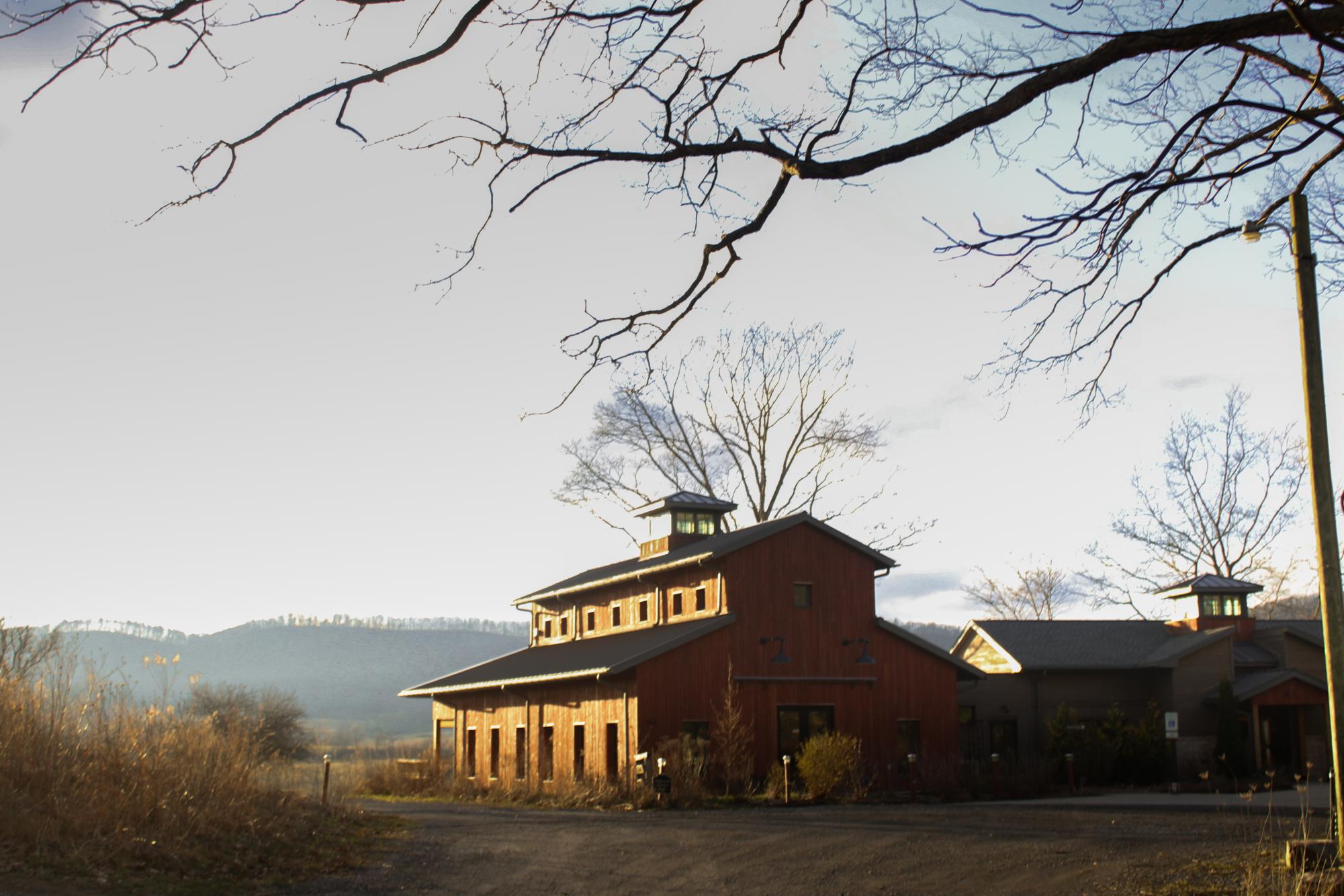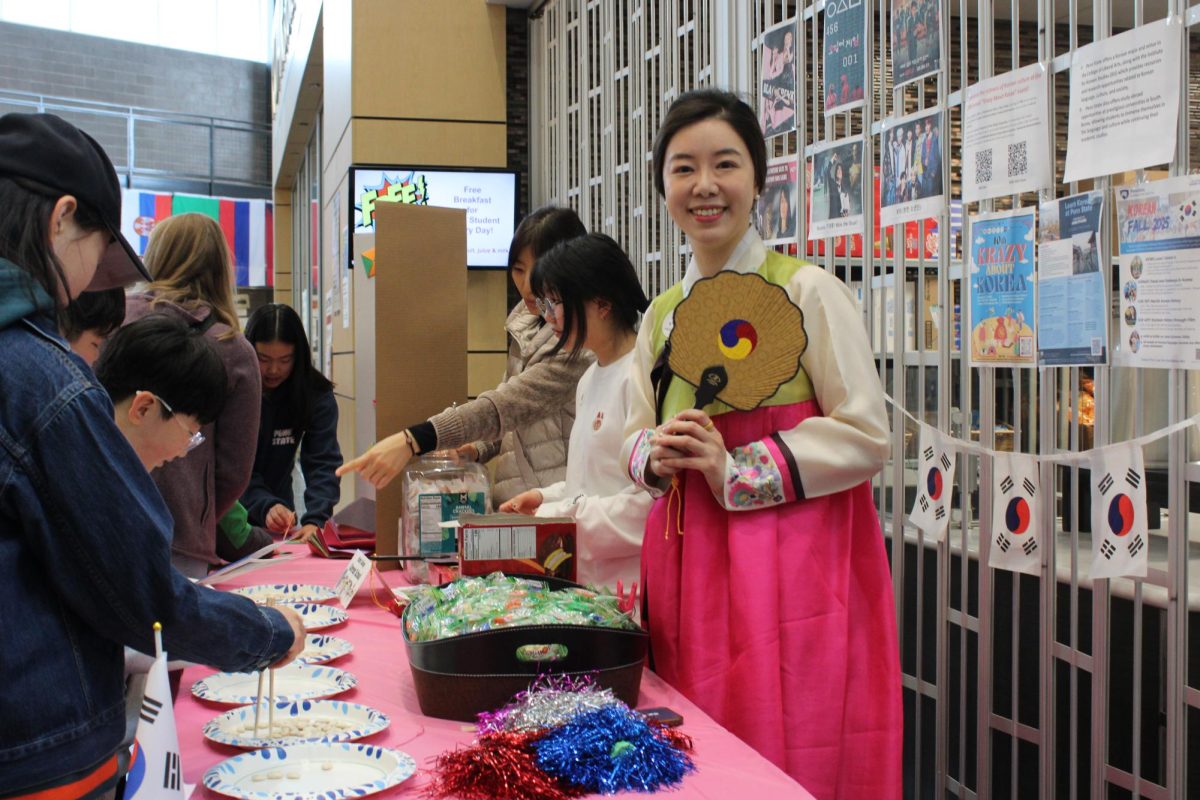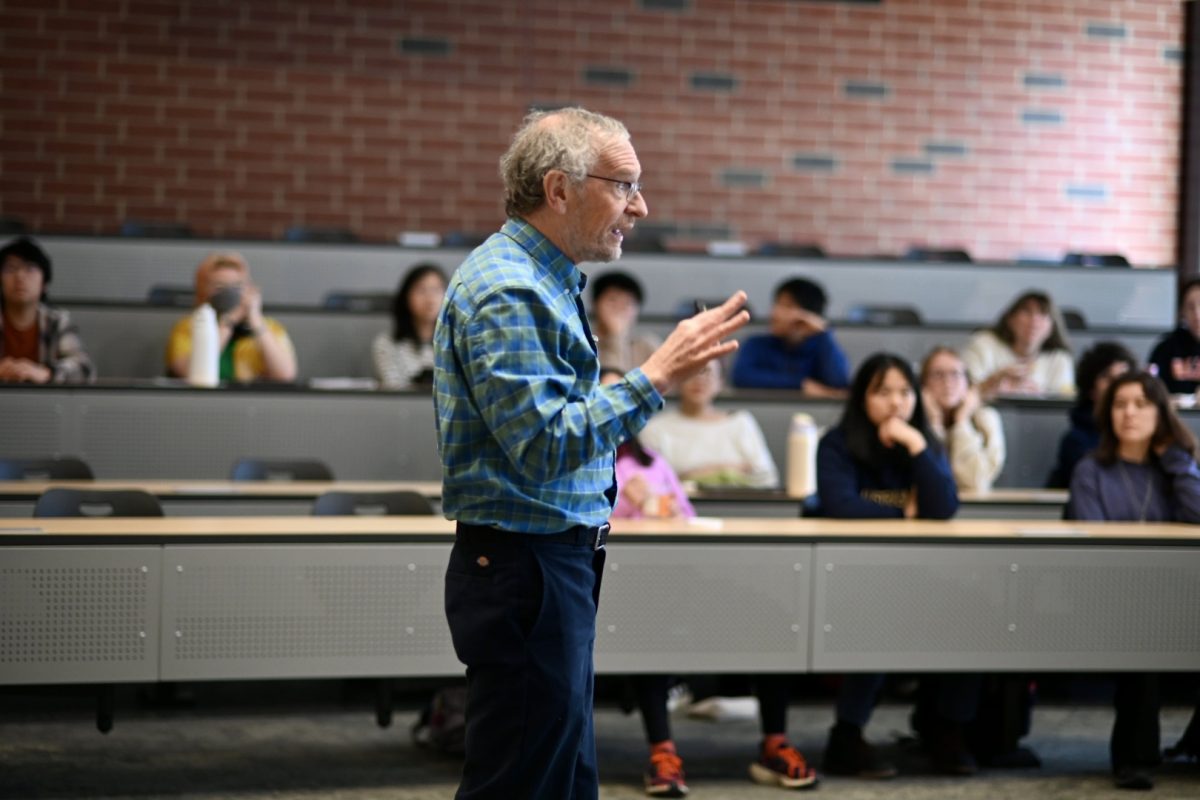Environmentalism has paved the way for a new wave of agriculture/sustainability-centric restaurants. Located at 1000 Fillmore Rd, State College, PA, RE Farm Cafe follows this trend with a mission statement of “enhancing the quality of life for the community by offering an innovative opportunity to learn, participate, and experience true, realistic sustainable practices through a unique dining experience.”
Welcomed by a gravel path and an accenting canopy of overhanging trees, the drive into the restaurant gives a grounded feel as it winds past farmland and fields of lamb and cow. The architecture of the interior commits to natural lighting and a barn aesthetic with its open windows and visible support beams. The dining area showcases an open industrial kitchen which remains seemingly quiet under the clutter of patron conversation Alcohol offerings at RE Farm consist of a variety of wines and an assortment of hard liquors, as well as draft and can brews. Non-Alcoholic offerings consist of tea and a “Create Your Own” mocktails/sodas.
RE Farm supports wedding and event venues, as well as cooking classes and an online market of their on-property produce. RE Farm Cafe’s regular service is a Four Course Dinner, requiring $80 reservations from 5 PM to 9 PM.
Tasting Course
Pickled Quail Egg with Radish
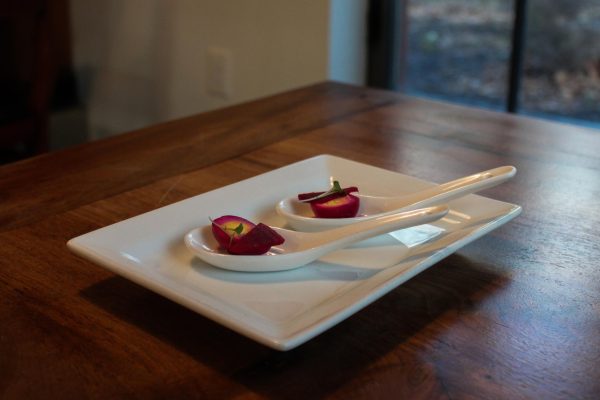
Preceding the first course was a small tasting course of Pickled Quail Egg with Radish, served on soup spoons and garnished with microgreens. Given the nature of the course, it makes sense the portions are limited. However, the flavor profile was muted and the egg hadn’t pickled to the point where it had any impact on the taste.
Along with the pickled quail egg was the house bread. The bread itself had been baked nicely and the balsamic added a nice variety to the dish outside of the standard of complimentary rolls.
Course One: Salad with a Soup Starter
Greens & Beets Salad with Borscht Soup
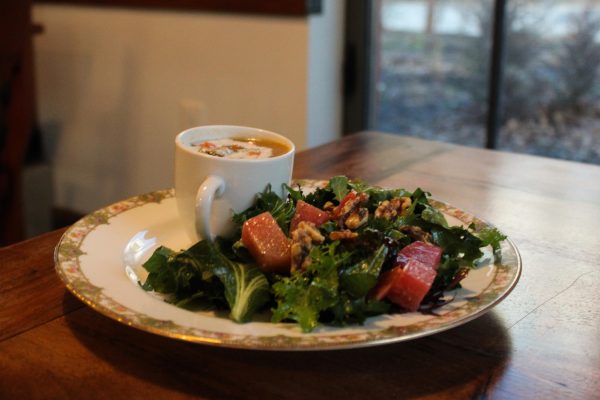
The Greens and Beets Salad was served with candied walnuts and a maple-walnut vinaigrette. It was able to have a nice balance between the bitterness of the greens, acidity of the dressing, and sweetness of the walnuts, and was dressed nicely. In State College, a large issue with lettuce and greens is the lack of fresh produce. However, the greens at RE Farm are grown with intention and with the customer in mind, making the restaurant one of few in State College with the same quality of product.
Borscht Soup is a traditionally Eastern European soup, made of vegetables and meat stock. At RE Farm Cafe, the Borscht is served with dill creme fraiche. The soup is emulsified and has a consistent texture.
The Salad and Borscht, although not particularly complementary to each other, do well to set the stage for the rest of the course while being a strong dish on their own.
Course Two: First Plate Choice
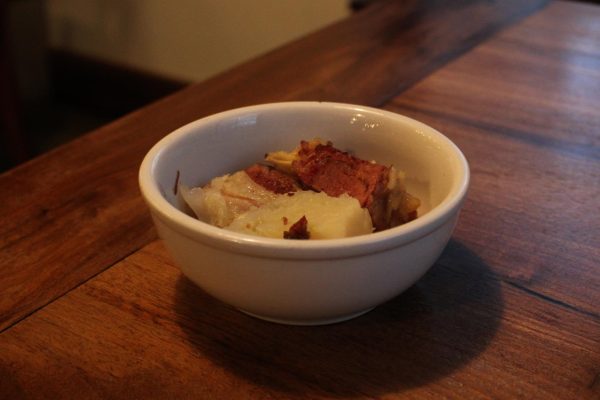
House-Brined Beef Brisket with Cabbage
A large part of this dish lacks a diverse texture. While the salad had textural differences in its walnuts or beets, the Beef Brisket and Cabbage were virtually the same “mouthfeel”. The Beef itself was medium-rare and had a strong flavoring. This dish just struggled to stand out due to its small portion size in combination with relatively small flavor profiling, only being able to draw from two primary flavors.
Bhajis
Bhajis is a south-Asian onion fritter. It was served with a yogurt sauce and pickled radish. The Bhajis stood out as a dish that conflicted with itself and the other courses.
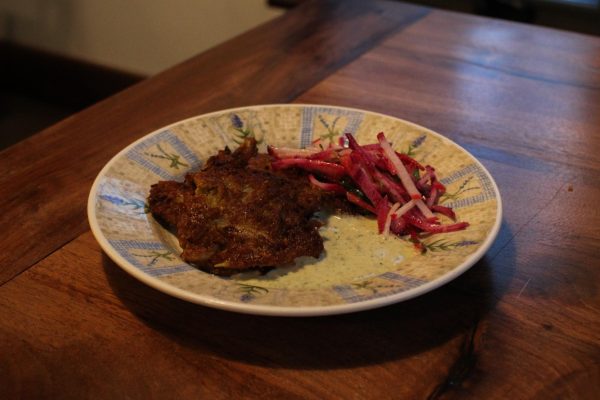
The fritters themselves were cooked well and tasted great. The Bhajis were even better when eaten with the yogurt sauce. However, the radish pickling liquid was super strong and bitter, making it difficult to dilute when eaten with the Bhajis or dressing. The radish was garnished with cilantro. Cilantro itself is often polarizing and is really powerful, leading to it overpowering the radish.
The Bhajis dish cuisine and flavor-wise didn’t mesh well with the rest of the courses and felt out of place.
Course Three: Main Plate Choice
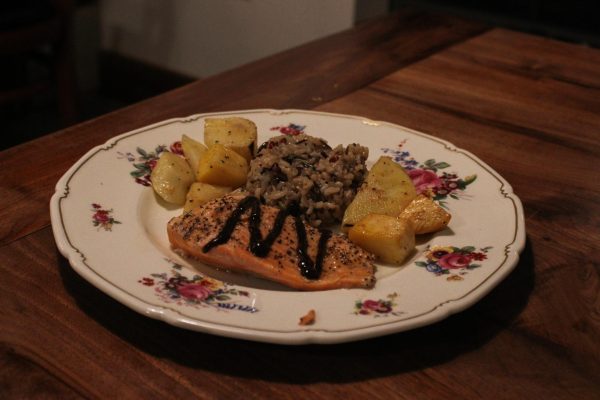
Green Tea Steamed Hudson Valley Steamed Steelhead Trout
The Steelhead was served with a black garlic sauce. A large problem with the dish was the portion size of the steelhead. It is a relatively small portion and is served alongside accompaniments which were larger than the fish. The fish was cooked really well and tasted better with the garlic sauce, but struggled to find itself as something that stuck out.
Pork Chop
The Pork Chop was the highlight of the entire meal. It was well-seasoned and cooked through.
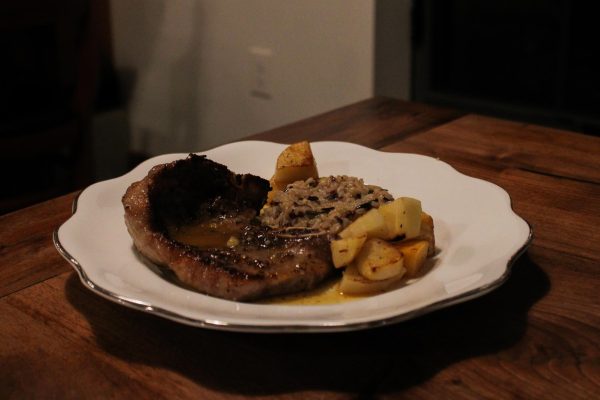
There was little to be desired with the pork itself, sauce, and otherwise. One critique of the Main Plate Choice dishes (at least between the Steelhead and the Pork Chop) was the lack of diverse plating. The two dishes were served with the same accompaniments, with the only difference being the choice of proteins. This made the sides feel less intentional and more of something to fill the plate.
Course Four: Finish Choice
Spruce Tip Tiramisu
The Spruce Tip Tiramisu was really unique flavor-wise. Spruce isn’t a particularly well-utilized flavor in most restaurants and it fits the environment of RE Farm really well.
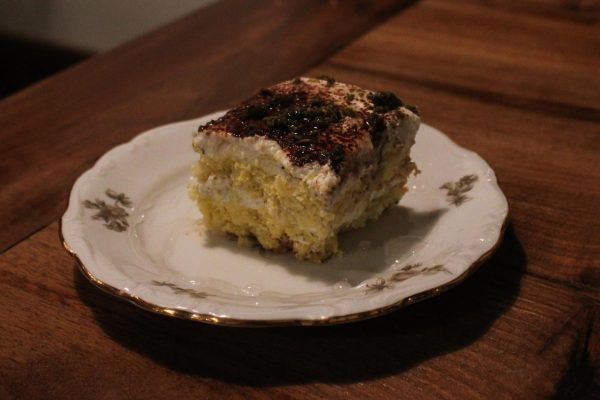
The cake was light and not dry. The Tiramisu is a nice end to the dinner. It is light enough to feel like a dessert, while heavy enough to make the patron leave feeling full.
House-made Maple Ice Cream
The Maple Ice Cream struggled with texturing. A “house-made” ice cream is relatively difficult to achieve, as most mass-produced Ice Creams are made with stabilizers. The RE Farm ice cream had an un-emulsified texture as a result, due to the fat and water separating.
RE Farm Cafe: Overall

Overall, RE Farm Cafe is a really healthy addition to the State College restaurant selections. A sustainability focus is super important and is one of the most important trends hitting the global restaurant industry currently. RE Farm also extends beyond its four-course offerings, including a “FarmStand”.
The “FarmStand” was a welcome element of the dining experience. RE Farm offers fresh produce, such as honey, salad dressing kits, thyme, or eggs. They also offer pottery — such as their “RE Farm Cafe Mugs” — offered in both large and small sizings.
The main critique of RE Farm would come from the price of the service. However, this perspective may come off as misguided. The four-course meal is $80. The food, on the other hand, is offered in relatively small portions which initially don’t feel enough for the price. However, between paying their employees a sustainable wage and producing all of their foods in-house, the price seems understandable. The only drawback is a possible loss of customers due to the $80 price tag.


